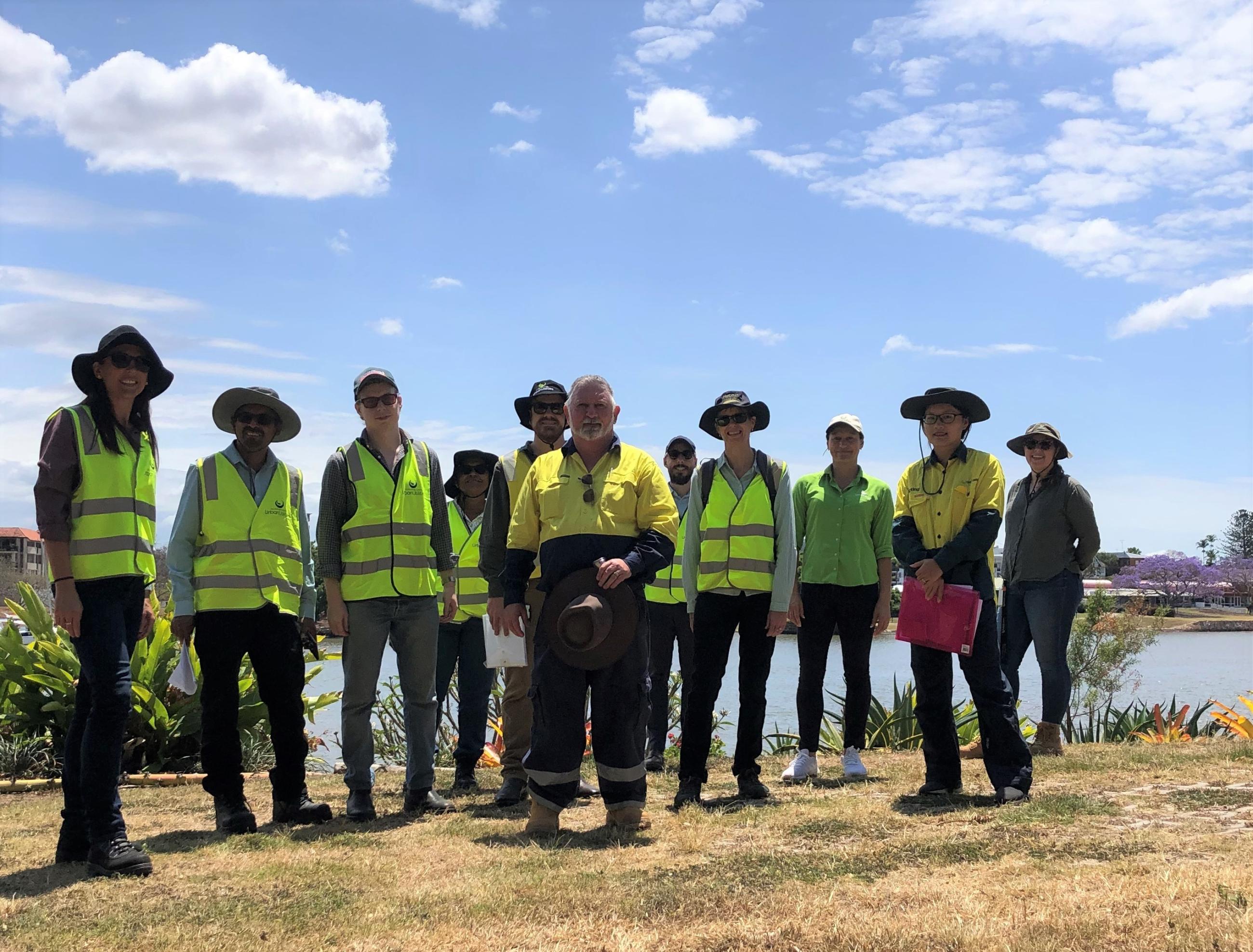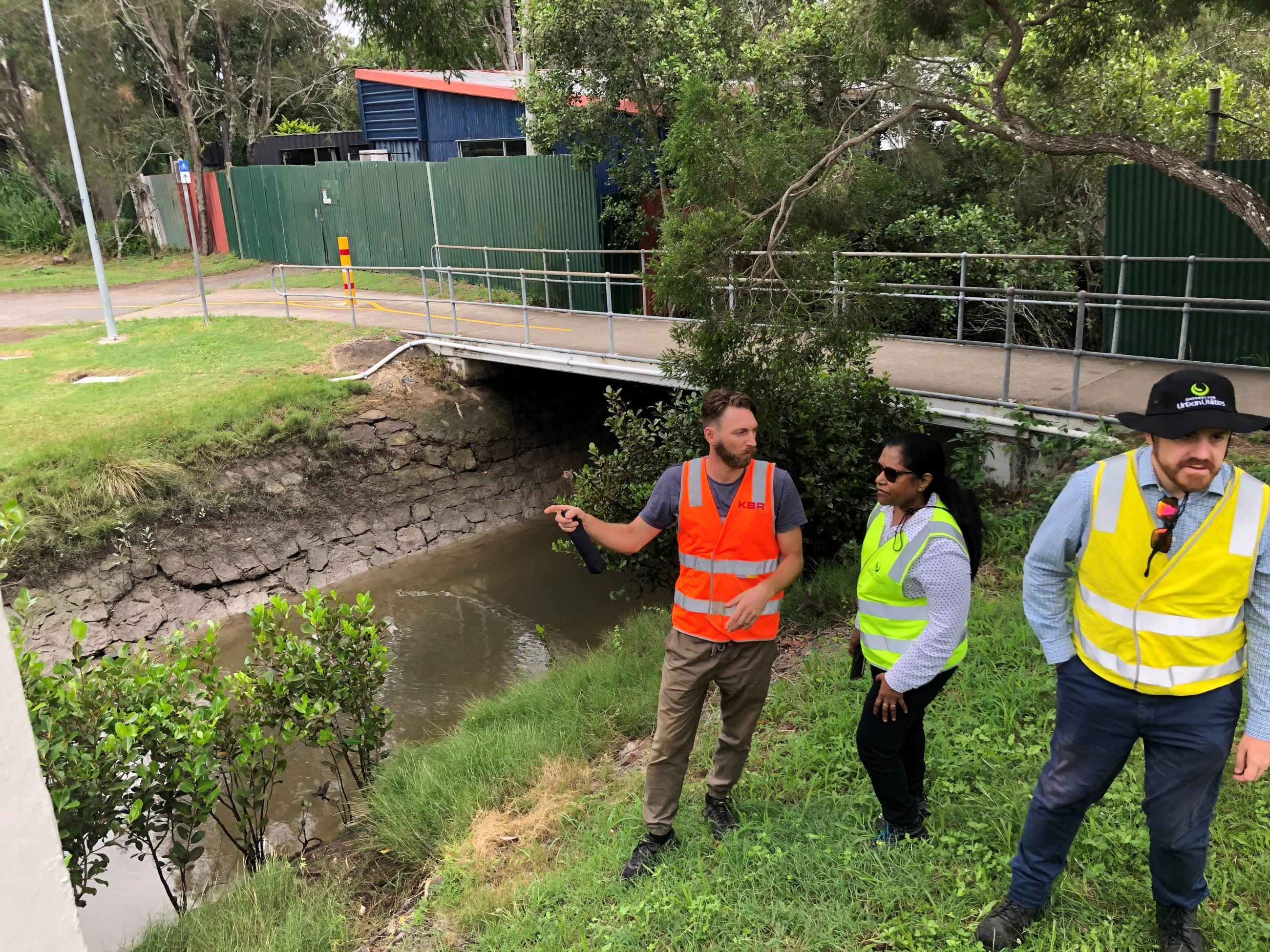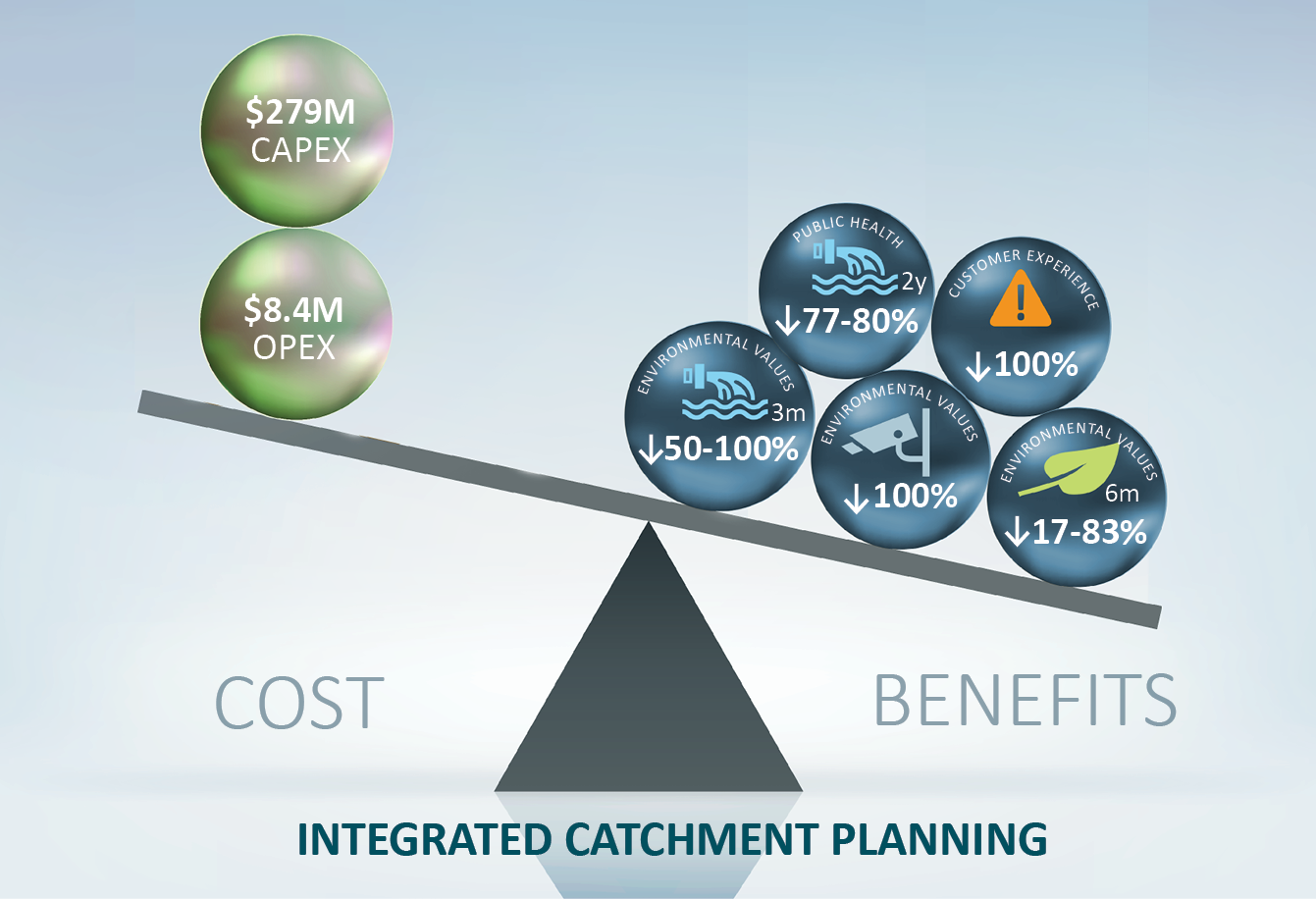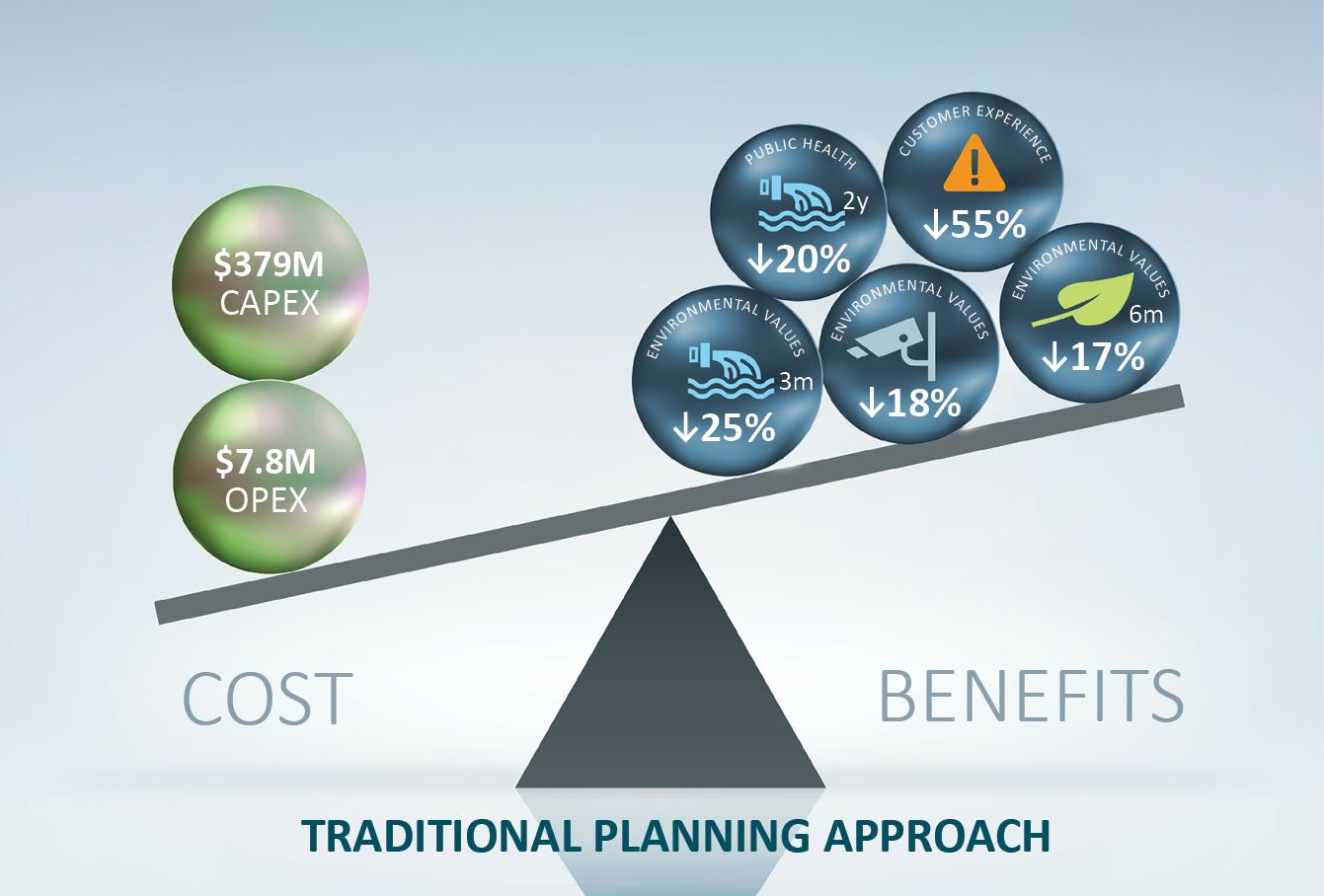Improving Reliability, Performance and Liveability for Customers in the Water Sector through Integrated Catchment Planning Approach
Traditionally, the planning approach in the water industry has relied on a ‘one size fits all’ rule-based approach to informing water and sewer infrastructure asset investment, without a thorough understanding of system performance outcomes and benefits realisation to customers, communities and longevity of assets.
This asset-centric approach leads to increasing investment in building new assets and maintaining and renewing existing assets, and fails to address complex and uncertain challenges such as climate change, water security, an aging asset base, changing customer expectations and population growth. KBR identified that perpetuating this approach to water utilities’ investment decisions could lead to increases to customer bills with no direct correlation to an improved experience.
To address these challenges, water utilities need to rethink how they can make the best use of their assets and deliver reliable and affordable services to their customers. Throughout our integrated partnership with Urban Utilities, KBR’s specialist team of change-makers identified an innovative data-driven, evidence-based approach that enables utility providers to adapt to changing conditions whilst protecting public health, reducing the environmental impact, increasing certainty in investments and enhancing liveability by providing safe, reliable and affordable services for customers.
As Urban Utilities’ long-term program management partner, KBR has supported the utility to realise its aspiration of creating great places to live for its communities and be a business in which every team member directly connects the work they do to the core purpose of enriching the quality of life of their customers. Through Integrated Catchment Planning, a collaborative approach to solving catchment-wide problems, KBR has helped transform the way Urban Utilities plans and delivers services to its customers and change the way they plan investments.
This involved bringing together people from different parts of the business to form cross-functional problem-solving teams that develop Integrated Catchment Plans (ICPs) for systems of assets. It is a hybrid approach to complex problem solving that has included adopting nine new processes and tools that utilise divergent and convergent thinking techniques and adaptive planning pathways to manage future uncertainty.
ICPs replace asset-centric solutions with a new catchment-level outcomes-based approach that optimises network system performance by assessing how interrelated assets are performing, rather than focusing on a single asset. This allows the team to gain a detailed understanding of the problems experienced by customers and work collaboratively across all business functions to provide multi-benefit solution recommendations, ranging from operational and maintenance interventions to staged infrastructure solutions and capital investment.
This new approach has been instrumental in transforming Urban Utilities to a more customer-centric organisation. The approach was trialled successfully on three priority sewerage catchments in FY2021, which saw it forecast significant capital cost savings in the pilot catchment across the 10-year forecast and an uplift in performance.
As the implementation of the ICPs continues, which will improve capital planning in the near term, KBR and Urban Utilities are developing the processes that will support long term investment clarity and the utility’s transition to a fully integrated, whole of system approach to service delivery.







